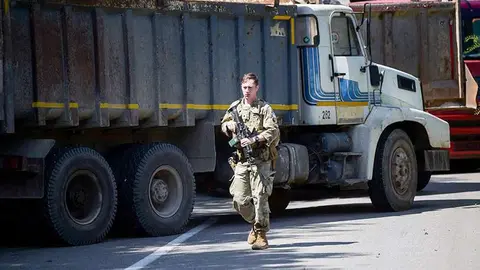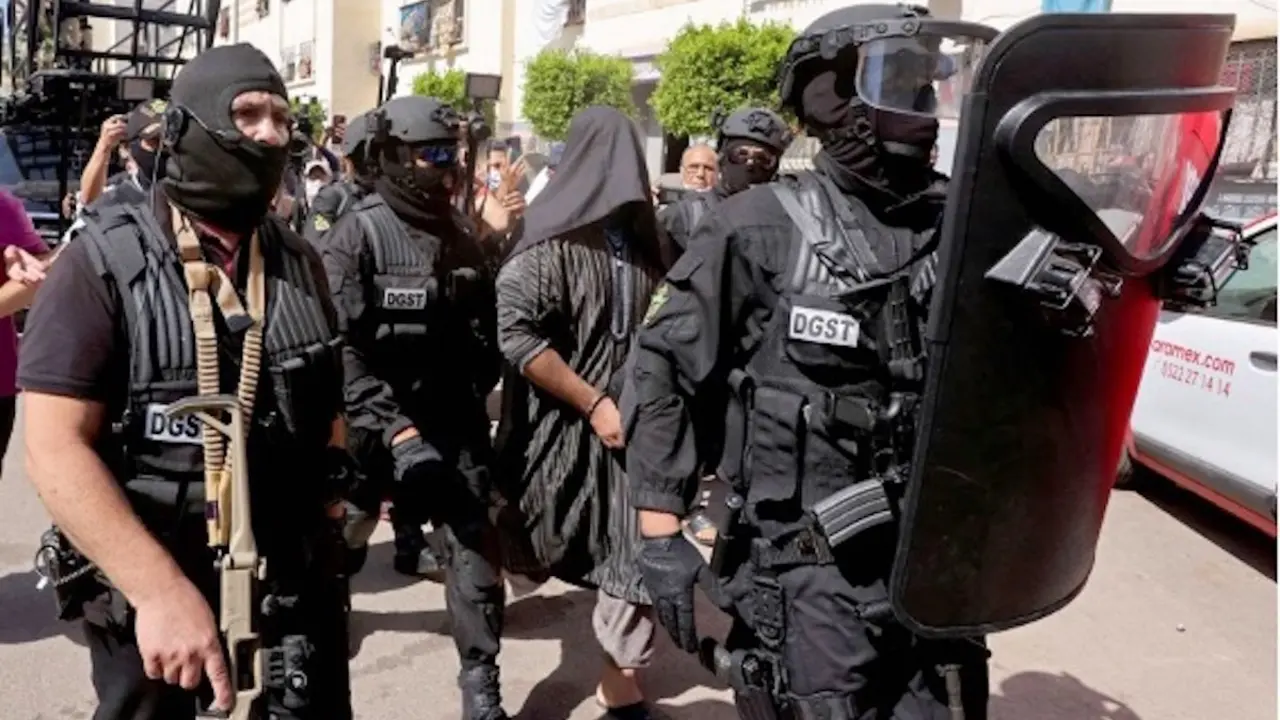Keys to understanding the riots in Kosovo, the most serious in recent years

This week's riots with more than 80 injured, including 30 NATO soldiers, are the most serious in recent years in Kosovo, where the Serb minority continues to reject the authority of the Kosovar government, 15 years after it unilaterally gained independence from Serbia.
These are the key reasons for the rising tension in Kosovo, home to some two million ethnic Albanians and 80,000 Serbs.
Why are there riots?
Serbs in northern Kosovo refuse to accept the authority of the mayors of four municipalities where Kosovo Albanians are in the majority. These ethnic Albanian mayors were elected in April in elections boycotted by Serbs.
The tension began last Friday, when Serbs blocked the mayors' access to the town halls and Kosovar police forced their way in, a move that was criticised by Kosovo's main supporter, the United States.
On Monday, protests turned violent and 50 protesters and 30 soldiers from the NATO mission, KFOR, were injured in Zvecan. In reaction, NATO is sending another 700 troops to reinforce the 3,800 already deployed.
What do the Serbs want?
Serbs are demanding the withdrawal of the mayors and special units of the Kosovar police. They say they feel discriminated against by the central government and demand that they be granted a certain level of autonomy, something agreed in 2013 but which Pristina does not implement, arguing that it would undermine the country's integrity.

Serbia's position
Serbian President Aleksandar Vucic vows that he will never recognise Kosovo's independence, a delicate issue, as any conciliatory attitude could cost him the support of more conservative and nationalist voters.
Serbia regards Kosovo not just as part of its territory but as the almost mythical origin of the nation, partly because it is home to the main centres of Serbian Orthodox Christianity.
What about the Kosovar government?
Kosovar Prime Minister Albin Kurti is also a nationalist like Vucic, and years ago even called for Kosovo's union with Albania.
The Kosovar leader says he will not recall the mayors elected in the boycotted elections and accuses Belgrade of provoking tensions by sending in extremist and violent groups.

What is the role of the EU and the US?
The US supported Kosovo's independence from the outset, and so do 22 of the 27 countries of the European Union (EU) (all but Spain, Greece, Romania, Slovakia and Cyprus).
The EU has been mediating for years for Kosovo and Serbia to improve their relations, a condition for one day joining the EU club, and a new plan is now on the table.
This plan envisages that the two sides will not block each other in international fora and normalise relations in many areas, although it does not contain an explicit recognition of Kosovo by Serbia.
The US first criticised the use of force by Kosovo police and then Serb attacks on NATO soldiers. To de-escalate tensions, it proposes that mayors continue to serve, but not from city hall buildings, and that the Kosovar special police withdraw. The EU has called, as has the US, for the two sides to avoid an escalation of tension.

What do Russia and China say?
The Kosovo crisis is also being played out on the international chessboard and is yet another arena for the clash of powers. China and Russia, which do not recognise Kosovo's sovereignty, say that the problem is that the rights of Serbs are not being respected.
Moscow accuses the West of instigating the conflict and of violating UN Security Council Resolution 1244, which provided for negotiations to create "substantial self-government" for Kosovo taking full account of Serbia's principles of sovereignty and territorial integrity.
Serbia, which aspires to EU membership but has excellent relations with Moscow, remains equidistant on the war in Ukraine, condemning the Russian invasion but not joining European sanctions against Russia.









